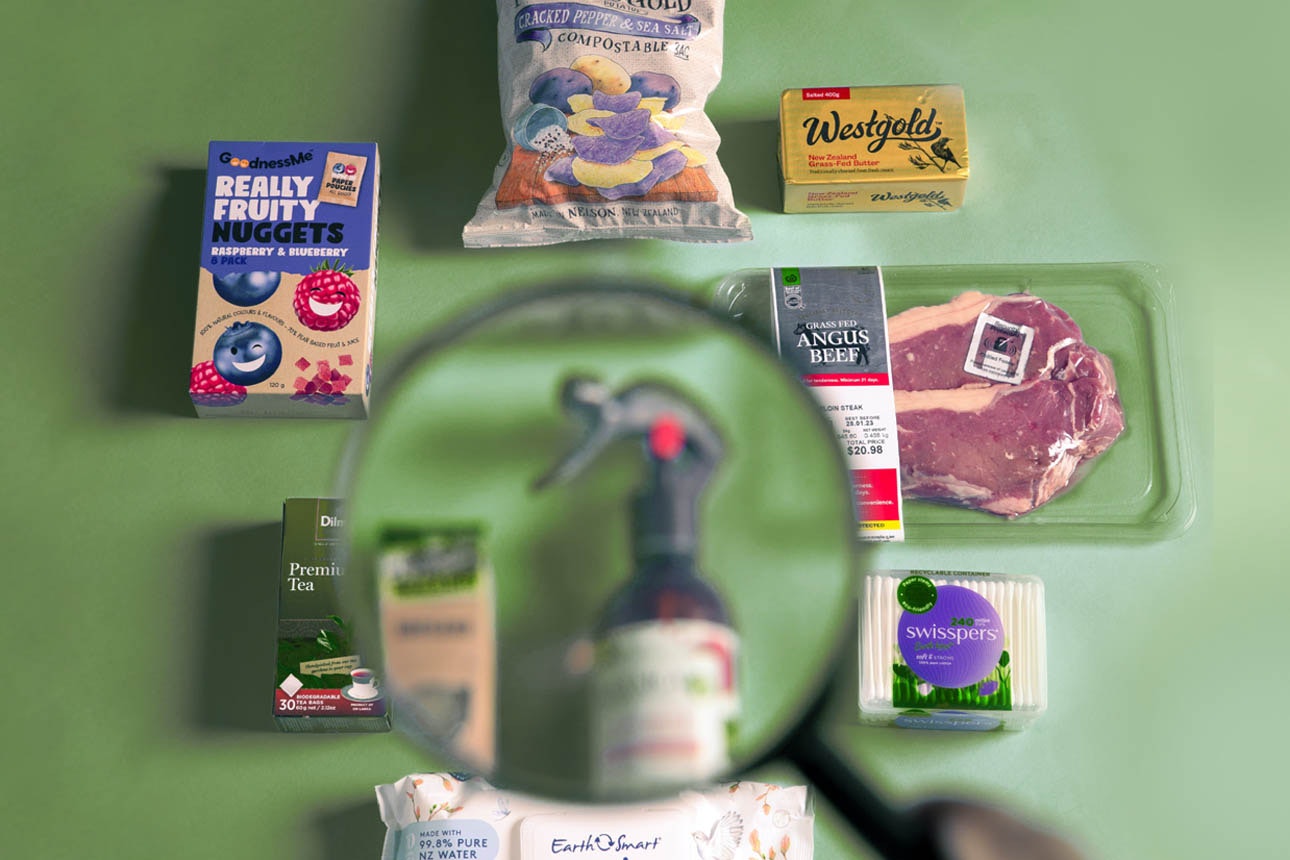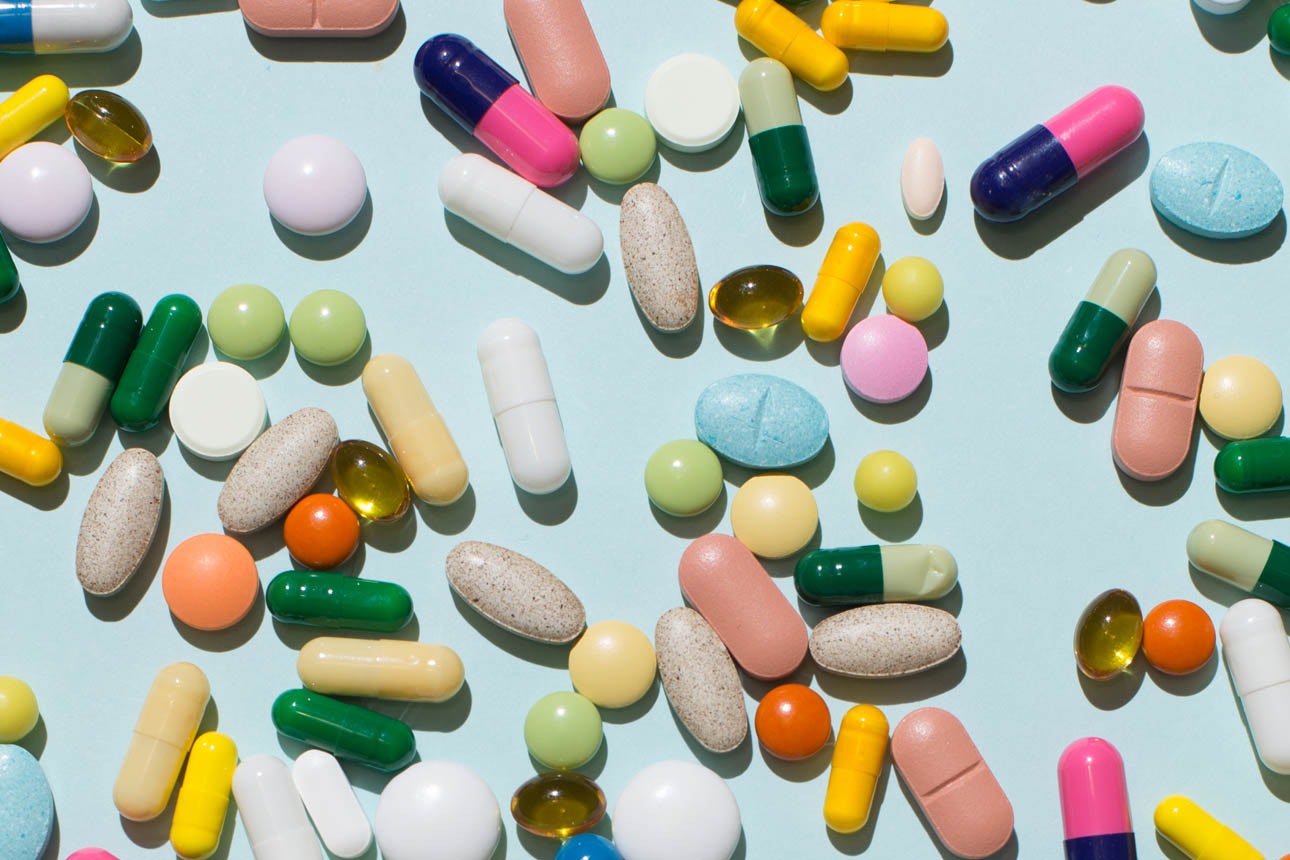
By Rebecca Styles
Research Lead | Hautū Rangahau
On our recent shop for cosmetics, we found a proliferation of “cruelty free”, “vegan formula” or “never tested on animals” claims and logos.
From images of bunnies, love hearts and mushrooms to certification scheme logos, manufacturers used a variety of ways to show their ethical credentials.
Yet the sheer variety of claims and logos made it hard to tell which came from legitimate third-party certification schemes, and which were just companies making their own assessments.
Ethical cosmetic claims can enable consumers to make informed choices. But under the Fair Trading Act businesses need to be able to back-up any claims they make. The Commerce Commission’s Environmental Claims Guidelines also suggests businesses make that evidence available to consumers.
Yet, when we looked online clear evidence was hard to find. So, we contacted the manufacturers of a selection of products to try and clear up the certification confusion.
The products
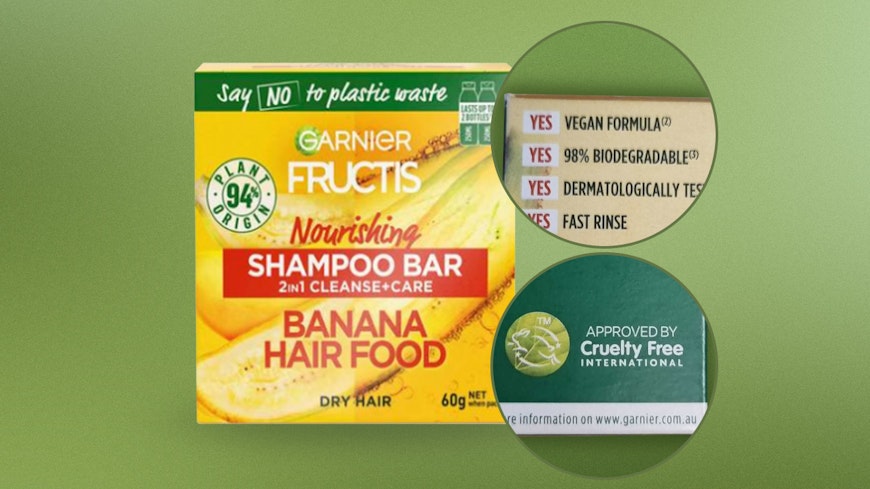
Garnier Fructis Nourishing Shampoo Bar 2-in-1 Cleanse + Care Banana Hair Food ($16.99)
Claims: vegan formula, approved by Cruelty Free International
We couldn’t find any evidence on Garnier’s website to back-up its vegan claim.
The product does have an “Approved by Cruelty Free International” logo, but that’s about testing products on animals, rather than assessing whether the ingredients are vegan.
A spokesperson for Garnier said its vegan formulas “are backed up with a forensic understanding of the raw materials used […] and how they are derived […] it means that the formula contains no ingredients that are derived from animals or by-products of animal origin.”
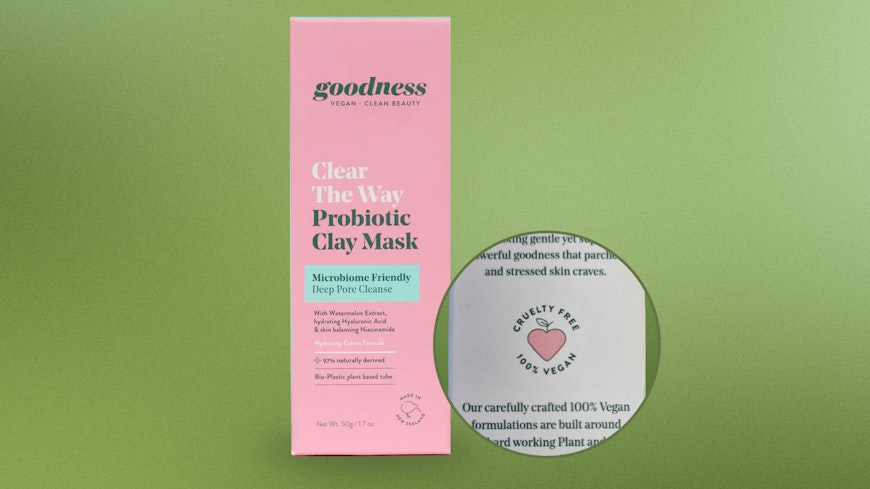
Goodness Clear the Way Probiotic Clay Mask ($17.00)
Claims: cruelty free, 100% vegan
The Goodness “cruelty free 100% vegan” statement has a love-heart-shaped apple as a logo. Yet this logo isn’t a certification. Instead, Goodness relies on a declaration from its suppliers that their products haven’t been tested on animals and don’t contain animal products.
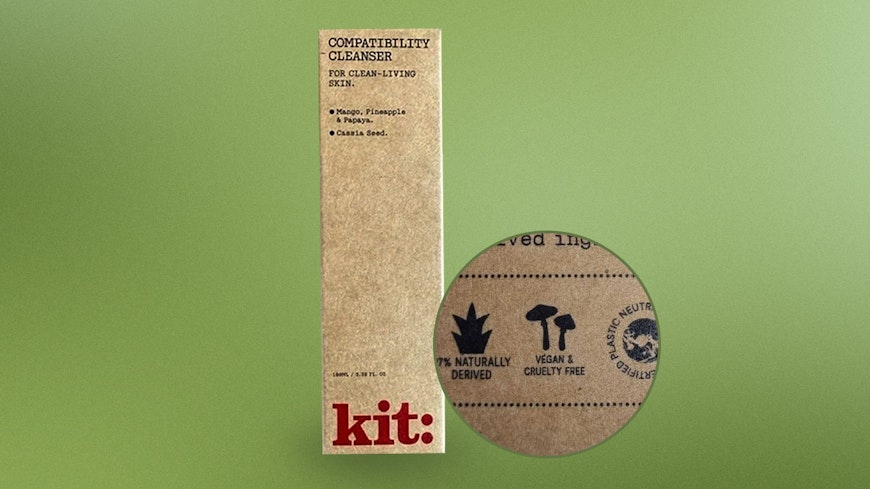
Kit Compatibility Cleanser ($35.00)
Claims: vegan, cruelty free
The Kit “Vegan and Cruelty Free” statement has a logo of two mushrooms above it.
Kit holds Vegan Society certification, which also bans animal testing for products and their ingredients, but the mushrooms aren’t the society’s logo.
When we asked parent company Mecca why Kit doesn’t use the official logo, a spokesperson said it “does not currently print any third party certification logos on its packaging.”
When we asked why not, they said, “we always strive to share accurate information with our customers and we’re constantly reviewing our packaging and messaging across all customer channels.”
We found this response as confusing as its logo.
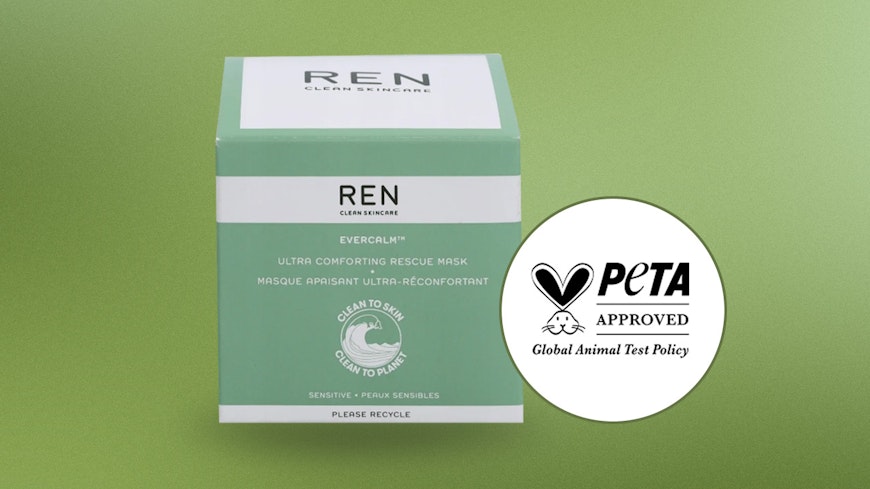
Ren Clean Skincare Evercalm Ultra Comforting Rescue Mask ($93.00)
Claim: vegan
When we looked up this product online, to find evidence to back up its vegan claim, we saw its PETA (Beauty Without Bunnies) certification. But this only confirms the product wasn’t tested on animals, not that it’s vegan.
We contacted Ren’s parent company Unilever several times to ask for the vegan certification, as well as contacting PETA, but we didn’t receive a response before publication.
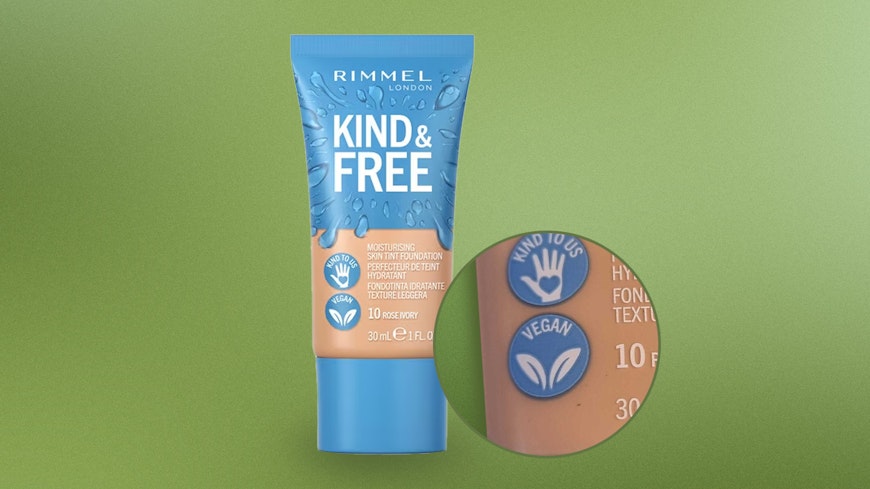
Rimmel London, Kind and Free Moisturising Skin Tint Foundation ($20.75)
Claim: vegan
This foundation is labelled vegan, but didn’t appear to have any third-party certification to back this up.
We asked Rimmel for evidence, but we didn’t hear back before publication.
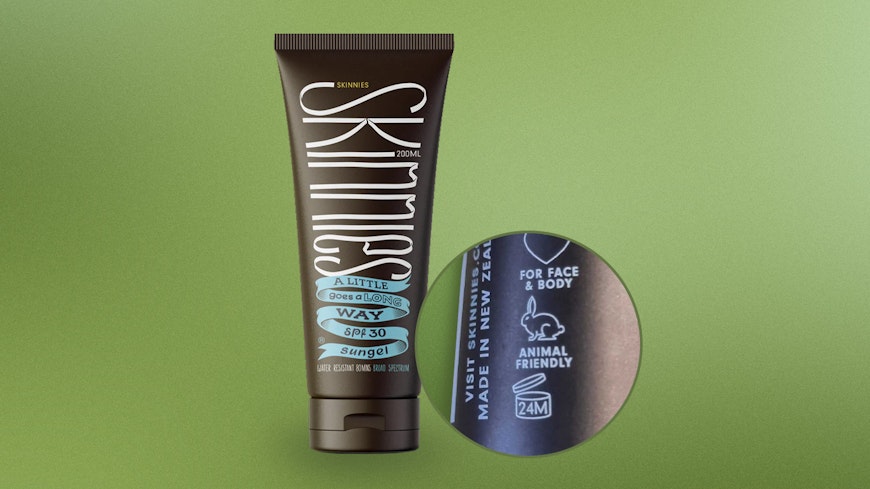
Skinnies A Little Goes a Long Way SPF 30 Sungel ($21.95)
Claim: animal friendly
Skinnies claims its sun gel is “Animal friendly”. When we asked the company to back up this statement, a spokesperson said the product was both vegan and not tested on animals.
While the product had initially been assessed by The Vegan Society, due to a change of ownership at Skinnies, the certification didn’t get carried over. However, it is due to be listed with the third-party certifier in the coming weeks.
Certification confusion
For consumers, a product with certification – also known as trust marks – can mean its manufacturer’s claims have been backed up and assessed by a third party.
For manufacturers though, getting certification can be time consuming and expensive.
However, as our research has shown, it can be hard to see which products have been third-party assessed and which haven’t. Adding to the confusion is that some companies don’t use the certifications properly.
For example, we discovered Garnier had Forest Stewardship Council (FSC) certification for its cardboard but it wasn’t using the right logo, so it was hard to tell whether it was a legitimate certification or not.
We checked with the FSC. It confirmed Garnier is using the FSC logo incorrectly and said it would follow up with them.
Because of the confusion around certifications, the EU is planning to regulate them. Its research found there were at least 230 different labels being used in Europe, which rather than adding clarity for consumers, could lead to confusion and distrust.
We certainly were confused by the number of certifications we encountered and the lack of evidence to back them up.
The EU is also not allowing any new government-led product labelling schemes, and if the private sector wants to create one, it will need to show its environmental aims and be pre-approved.
We think trust marks should be tidied up in Aotearoa, too.
What’s the law around animal testing in Aotearoa?
Testing cosmetics on animals has been banned for cosmetics made in Aotearoa since 2015. The ban applies to whole products and to ingredients that are solely to be used for cosmetics.
Manufacturers do still need to ensure their products are safe for people to use. But there are ways they can do this without relying on animal testing.
In some cases, because particular cosmetic ingredients have been used for years, animal-based studies already exist for them, so don’t need to be repeated. These studies can still be used as evidence of safety.
Another potential loophole is where an ingredient has been tested on animals for another product. For example, if the ingredient has been used in pharmaceuticals manufacturing first.
The list of other countries that also ban animal testing for cosmetics is growing. However, some continue to allow it.
“We can’t control whether international cosmetic companies test on animals or not, but the worldwide trend is to reduce this testing, or get rid of it entirely,” said Dr Joanna Dowle, a senior advisor at the Environmental Protection Authority.
Vegan and animal testing certifications
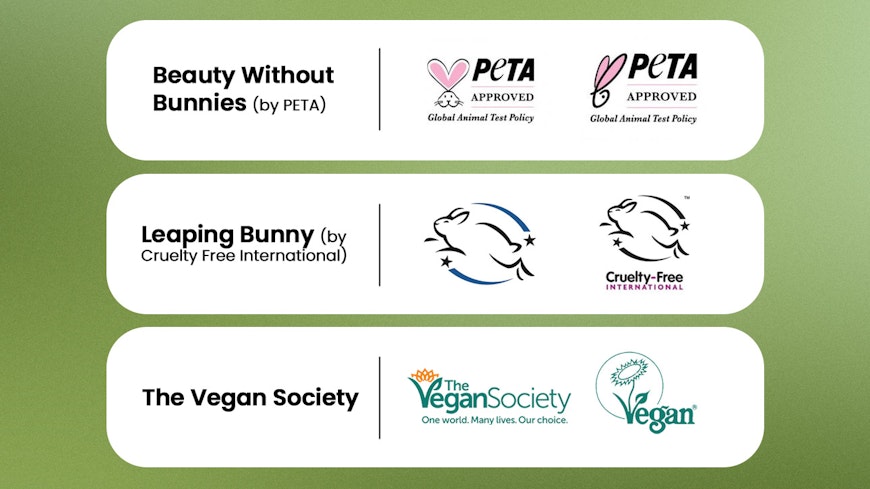
Recognised international logos include Beauty Without Bunnies (by PETA) and Leaping Bunny (by Cruelty Free International).
PETA also has a “cruelty free and vegan” certification for products that are cruelty free and don’t include any animal ingredients.
Other recognised third-party vegan certifications include those by The Vegan Society. The society checks individual products (rather than entire companies) to ensure they don’t include animal products, by-products or derivatives.
The Vegetarian Society also offers vegetarian and vegan certification.
The former means no animal parts are used, and if eggs are included, they must be free range. The product is also certified to be GMO-free and there’s an assurance of no animal testing for cosmetics. The latter means no animal-derived ingredients at all are used, and the product’s GMO free and involved no animal-testing.
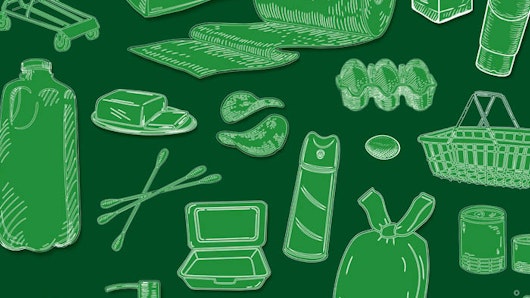
Help stop greenwashing in Aotearoa
We need your help to call out dodgy 'green’ claims.
